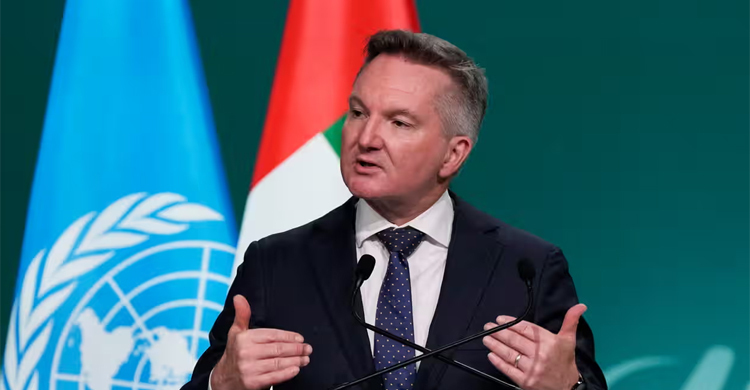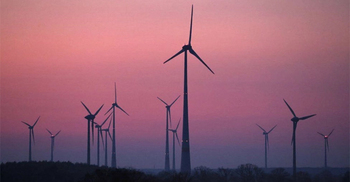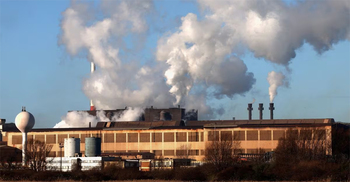Australia, US and UK say they won't sign Cop28

A group of countries including Australia, the US, the UK, Canada and Japan have said they will “not be a co-signatory” to “death certificates” for small island states, and have demanded a stronger agreement at the Cop28 summit to deal with fossil fuels and address the climate crisis.
A statement delivered by the Australian climate change minister, Chris Bowen, on behalf of what’s known as the umbrella group of countries, came as tensions flared at the United Arab Emirates over the text of a draft deal proposed by the summit presidency.
Released early on Monday evening local time, the draft avoided highly contentious calls for a “phase-out” or “phase-down” of fossil fuels in an attempt to find consensus from nearly 200 countries that have been meeting in Dubai for nearly a fortnight.
Some observers welcomed elements of the draft, including the first mention in a Cop text of reducing fossil fuel production, but others were scathing, describing it as “grossly insufficient” and “incoherent”.
Cedric Schuster of Samoa, the chair of the Alliance of Small Island States, said: “We will not sign our death certificate. We cannot sign on to text that does not have strong commitments on phasing out fossil fuels.”
Bowen referred to Schuster’s statement in his intervention in a later meeting between government representatives and the UAE summit president, Sultan Al Jaber. He was speaking on behalf of the umbrella group of countries, which also includes New Zealand, Norway, Israel, Ukraine and Kazakhstan.
“My friend Cedric Schuster, the Samoan minister, said tonight of this draft that we will not sign our death certificates,” Bowen said. “That’s what’s at stake for many countries who are represented here tonight and many people who do not have a voice. We will not be a co-signatory to those death certificates.”
Bowen said there were some positive elements in the draft, but the group was united in believing it was too weak. It needed to send a much clearer signal on the future of fossil fuels, better address climate adaptation and deliver “an outcome which we can be proud of and explain to people is not a step forward, but a step change”, he said.
He said the group, which includes several of the world’s biggest fossil fuel users and producers, believed in a phase-out of “unabated” fossil fuels – a controversial position that suggests coal, oil and gas could still be used if carbon capture and storage technology proved viable. But he said it could support different wording in the deal, suggesting “a transition away from fossil fuels in keeping with the science”.
He said it could not be flexible on having an agreement that kept the goal of limiting global heating to 1.5C within reach. “That’s not up for compromise,” Bowen said.
The talks were expected to continue through the night on Monday before a Tuesday morning deadline for agreement that few, if any, people thought would be met.
Instead of requiring producers to cut their fossil fuel output, the draft framed such reductions as optional by calling on countries to “take actions that could include” reducing fossil fuels. Some country groups, including the EU, indicated it could lead them to walk out of the talks if not addressed.
While many countries wanted the text strengthened, it was feared that others such as Saudi Arabia and its oil producing allies in Opec might use the final hours to try to further weaken the draft. The Saudis have spent the meeting insisting the document should refer to dealing with emissions, not fossil fuels.
Source: The Guardian





